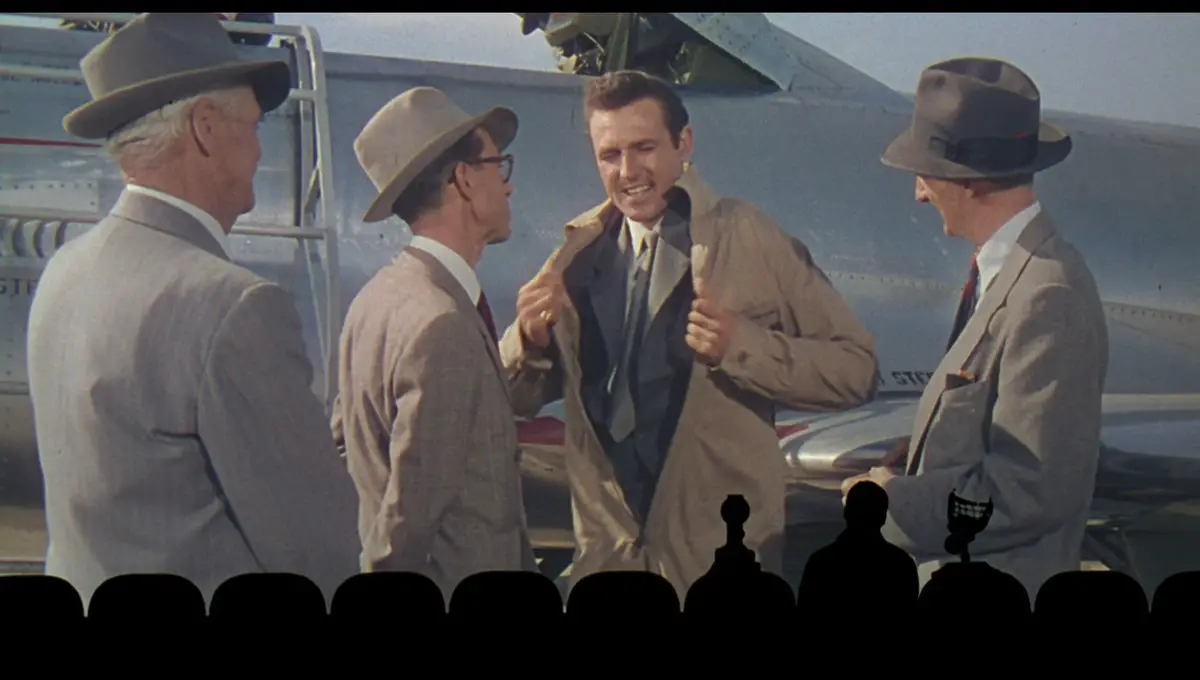Among the sea of sci-fi lookalikes, “Mystery Science Theater 3000” is truly something special.
After all, the sheer ambition of the proposal for such a series—in which every episode consists of the characters of “Mystery Science Theater 3000” commentating on the most horrible, low-budget, full length B movie—must have made even the most progressive of TV network executives tremble at the thought of taking such a risk. The investment of time from an already-crowded broadcasting schedule is one thing, but having an entire show built around a few characters literally watching movies in their entirety, just so that the audience could laugh along with their witty commentary?
Against all odds, the pitch for the show somehow landed in spectacular fashion, with the series airing a full ten seasons from 1988 to 1999 and garnering a legion of loyal fans along the way. The obscure nature of the show’s premise, along with the seemingly indefinite hiatus that followed into the new millennium, has made the show into one of the most revered cult classics to have ever graced television networks, rivaling the likes of even “Twin Peaks”—which, coincidentally, has also gotten a second chance this year.
It is likely that none of the fans had much hope for any sign of an eleventh season, seeing as the birth of the show itself was seen as such a brilliant fluke in the history of corporate television, but Netflix, along with the show’s original creator, set out to prove them wrong. But have they actually managed to prove the skeptics wrong? Is it really possible to capture the same strike of lightning in a bottle that was the original series, eighteen years later?
Skeptics will remain skeptical, as always, but both new and longtime fans of the series are answering that question with a resounding “yes.”
One of the most important concerns raised by critics is perhaps the most obvious when it comes to reviving a show nearly twenty years later: What about the original cast? Of course, getting the original crew back together at this point in time would be impossible, but Joel Hogdson, the original series creator, embraced the idea of giving some fresh faces a chance. Chief among these new faces is the lead character of the series, played by renowned comedian Jonah Ray. In addition, Jonah’s good friends Hampton Yout and Baron Vaughn were selected to be the new voices of the spunky, wise-cracking robot companions lovingly known as Crow and Tom Servo.
The show stays true to the time-tested yet simple formula of the original: A poor human trapped aboard a space station by a mad scientist with a wacky crew of robots, some of whom must join him in the torturous experiments of being subjected to the absolute worst B movies in human history. What is the objective of these experiments? Who knows.
The basic plot is really nothing more than a simple construct to allow for the hilarity that ensues when cheesy movies are paired with well-written commentary, and the show creators have done well in realizing that it has never, and will never need to be any more complicated than that. After all, the show has thrived on fulfilling the niche of its singular purpose, making the viewing audience feel as if they are sitting down with a group of friends.
For a newcomer to the series, as strange and implausible as the whole idea may sound, I say that it’s for this reason alone that the show deserves at least one attempt at viewing. Nearly everyone has had one of those nights with their friends where they purposefully selected an awful horror movie for the simple fact that they would have their friends there to make the experience into an intentionally hilarious one, but the beauty of “Mystery Science Theater” is that it captures that same magic no matter what context the viewer is already in. If they are watching alone, then it’s suddenly like the viewer is having a “bad movie night” with friends that they have known for, say, eighteen years? If the viewer is already in good company for the viewing experience, then the experience is only enhanced by the presence of professional comedians following expertly crafted scripts tailored specifically for the movie on the hit list.
As they say, the more the merrier, and nowhere does this hold truer than with this sort of viewing experience.
While the show creators could have easily taken advantage of the unique possibilities provided by Netflix’s commercial-free structure, Joel made the wise decision to keep the segmented nature of the original, seeing the show’s characters come to life during the breaks in the film for original skits, songs, mail from fans and even an “invention exchange.” This is just part of the magic that could have easily been lost with a “greedy” approach to the reboot, but it serves to make the show, and its characters, something all their own, rather than a simple run of a film with commentary attached.
There’s far more to the crew than the unlucky three being forced through the experiments, and it’s to the series’ benefit that the reimagining of this cult classic has been kept fully intact. The new crew is really allowed to show their unique skills when it comes to delivering a brand of comedy unlike any other during segments such as these, and when combined with the overall package that the show provides, it quickly becomes apparent that this remake is far more than a simple cash grab. No, this reboot is a love letter to a legion of fans that have supported what could have easily been a financial disaster, and a deterrent from ever taking such risks in the future, over the years, along with being an open invitation to new fans, much like the fresh faces welcomed aboard the space station for all its antics.
Call it a love letter, call it a risk, or call it a satire of epic proportions that offers a view into our own illogical practices of investing time into films that we know will be horrible, but as a longtime fan of this series, I will call the reboot one thing above all else: a miraculous success that rivals the original.
















